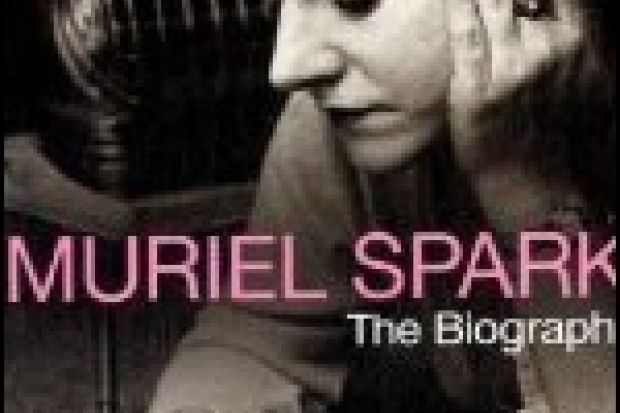The first problem for any biographer of Muriel Spark is that her life seems to be split evenly between her first 40 years, before she was a published novelist, and her next 40 years as an author.
The first half is reasonably exciting - a mixed Christian-Jewish heritage, a teenage marriage and pregnancy in colonial Africa, her return to wartime London without her son, her work in black propaganda in the last years of the war, a period as secretary of the Poetry Society taking on the dilettante old guard, married lovers, years of grinding poverty combining secretarial work with writing for small presses - and leads to an amphetamine-induced breakdown.
But the second half of her life, spent in disciplined isolation as a writer, combined with growing affluence, speaking engagements, international travel and the occasional cocktail party, is by contrast less interesting.
Martin Stannard is himself now a giant of his genre, but he is also an irremediable literary critic and accordingly chooses to structure his biography of Spark around her published output, with digressions into readings of each of Spark's texts, which are always read according to their biographical content, a strategy that is more or less convincing depending on the text.
Thus, we are quickly through with Spark's first 40 years by chapter seven. This leaves 13 chapters and 21 novels to go in the remaining 350-plus pages. Consequently, the larger part of this biography involves a rather repetitive pattern of writing in isolation (when nothing but writing happens), launch parties and being picked up at airports.
The second problem for any Spark biographer is that the events of her pre-novelist years are "well known". This is the result of relentless self-mythologising in her 1992 autobiography, Curriculum Vitae, and also in earlier essays such as "How I Became a Novelist" and "My Conversion". However, Stannard brilliantly and sympathetically effaces the self-mythology of Spark's well-known public image. His authorial voice will seldom criticise "Muriel", but rather lets her actions and the quoted letters from those around her speak for themselves.
Stannard slowly builds up a picture of a woman who was by turns overly sensitive, undiplomatic, impatient, vain, sexually neurotic and litigious, as well as generous in her friendships (as long as they lasted), encouraging of others, waspishly funny, and a genuine female autodidact who achieved all that she did without the privilege of higher education or institutional support. The events of the second 40 years are less well known but there is a reason for that.
This is a magnificent biography but it is not definitive: it is too respectful to really pursue in a critical way the inner demons that drive Spark's novels: her eccentric, unorthodox religious hybridity (which is as much a faith in faith itself rather than in Catholicism) and her compromised understanding of her own heterosexuality; although Stannard is good on her flight from family and Scotland. Instead we are left with flashes of biographical gold: her brother was the lead engineer on the Minuteman missile programme; she voted Tory in the 1945 Labour landslide; her editor at Macmillan, Alan Maclean, was the brother of spy Donald Maclean; she escorted the mother of Ralph and Joseph Fiennes to sessions with a psychiatrist; she had a flirtation with Lionel Trilling; Ingmar Bergman directed a successful Scandinavian touring production of her play The Doctors of Philosophy; and so on.
I am immensely impressed and inspired by this book, which takes the time to do justice to its complex subject. Stannard's ten years of labour have rendered an inestimable service to the Spark scholar of the future with a book that will have to be reckoned with on its own terms as a subtle example of the genre of life-writing.
Muriel Spark: The Biography
By Martin Stannard
Weidenfeld & Nicolson
656pp, £25.00
ISBN 9780297815921
Published 30 July 2009
Register to continue
Why register?
- Registration is free and only takes a moment
- Once registered, you can read 3 articles a month
- Sign up for our newsletter
Subscribe
Or subscribe for unlimited access to:
- Unlimited access to news, views, insights & reviews
- Digital editions
- Digital access to THE’s university and college rankings analysis
Already registered or a current subscriber?
